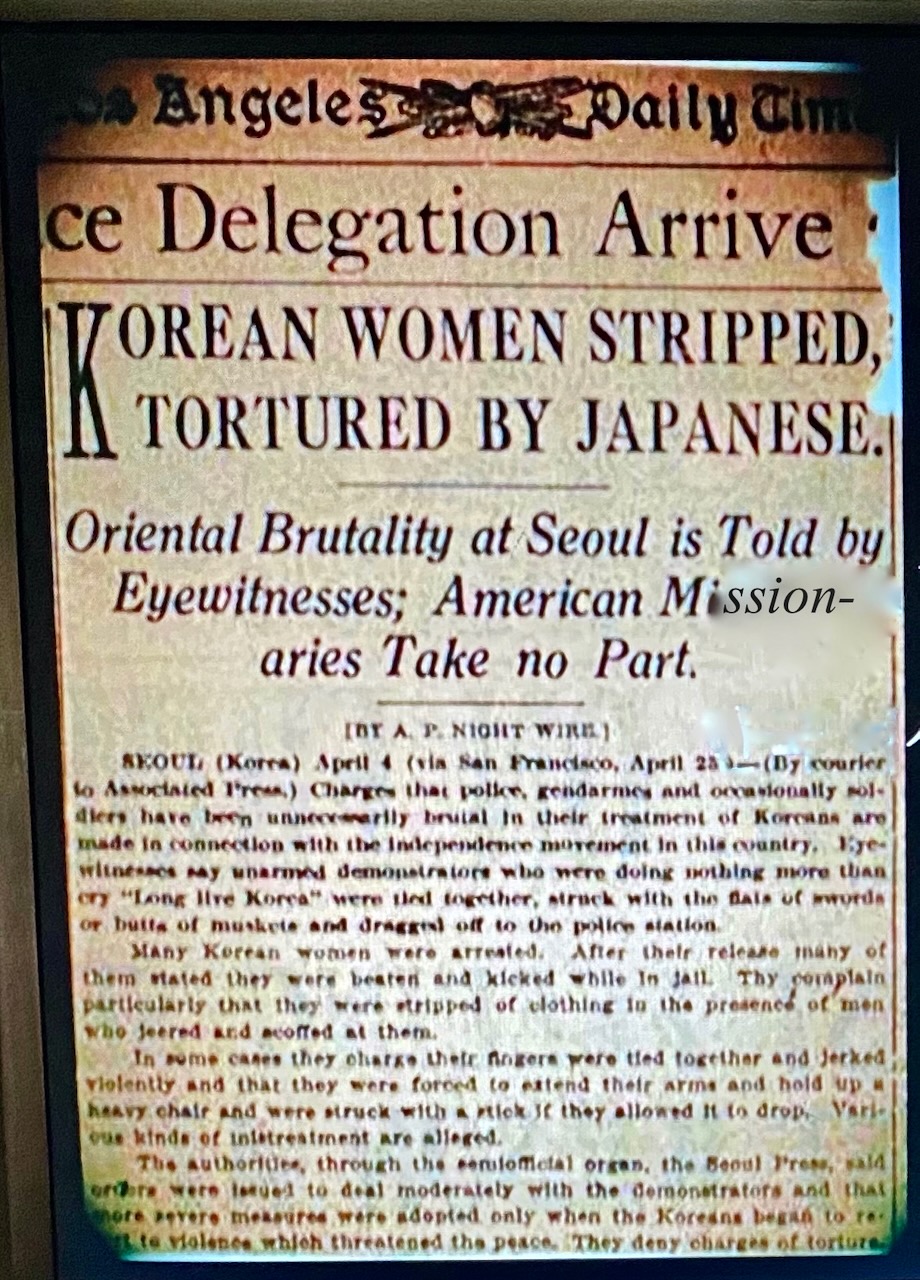WWJD
By Maureen Fielding
“KOREAN WOMEN STRIPPED,
TORTURED BY JAPANESE.
Oriental brutality at Seoul…
American missionaries take no part.”
So reads the 70-year-old headline
of a Los Angeles Daily Times cutting,
yellowing, displayed behind glass
in the Museum of Korean Contemporary History.
My question is this:
Did the missionaries take no part in
the stripping,
the torturing,
or the defending?
Did those godly folks
book first class passage on the SS Korea,
travel thousands of miles
across Pacific Ocean swells and surges,
battered by typhoons,
seasick in their cabins,
just to watch young women tied together,
struck with swords and butts of guns,
dragged off by policemen and soldiers?
To deliver Jesus?
To save the pagan souls?
To witness brutality?
To watch torment and humiliation
but to take no part?
We learned in school of the martyred missionaries,
the Jesuit priests in Canada,
Franciscans in Japan,
Daughters of Charity in China.
These were the missionaries of my childhood,
missionaries who could inspire a 10-year-old girl to
build a shrine of dandelions and violets,
to pray to plastic statues and pictures on the wall,
and weep at their sufferings.
But who were these missionaries who took no part?
The words pain me as if a sword had struck
some precious spot, excising
some last fragment of faith.
Maureen Fielding is an associate professor of English and Women’s Studies at Penn State Brandywine. Her work has appeared in Westview, Black Fox Literary Magazine, Marathon Literary Review, and other journals. She has taught English in South Korea, and she has been teaching about Japanese Militarized Sexual Slavery in Women’s Studies classes for 20 years. She is working on a chapbook based on research conducted in South Korea before the pandemic began. She has also written a novel inspired by her experiences as a Russian intercept operator in West Berlin during the Cold War.
The photo is provided by Maureen Fielding. The 1919 Los Angeles Daily Times article that inspired this poem is on display at the National Museum of Korean Contemporary History, in Seoul, South Korea.
A note from Writers Resist
Thank you for reading! If you appreciate creative resistance and would like to support it, you can make a small, medium or large donation to Writers Resist from our Give a Sawbuck page.

